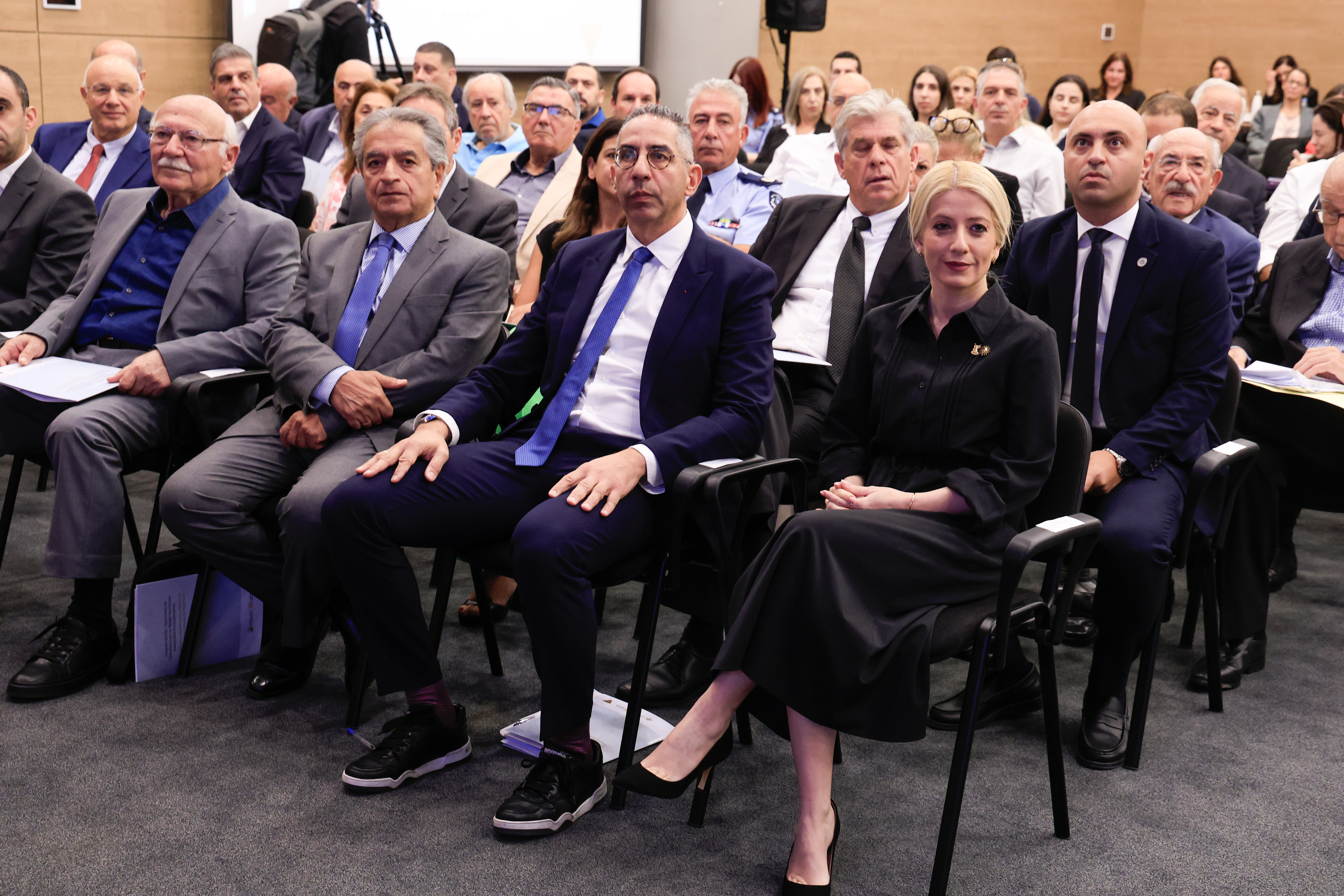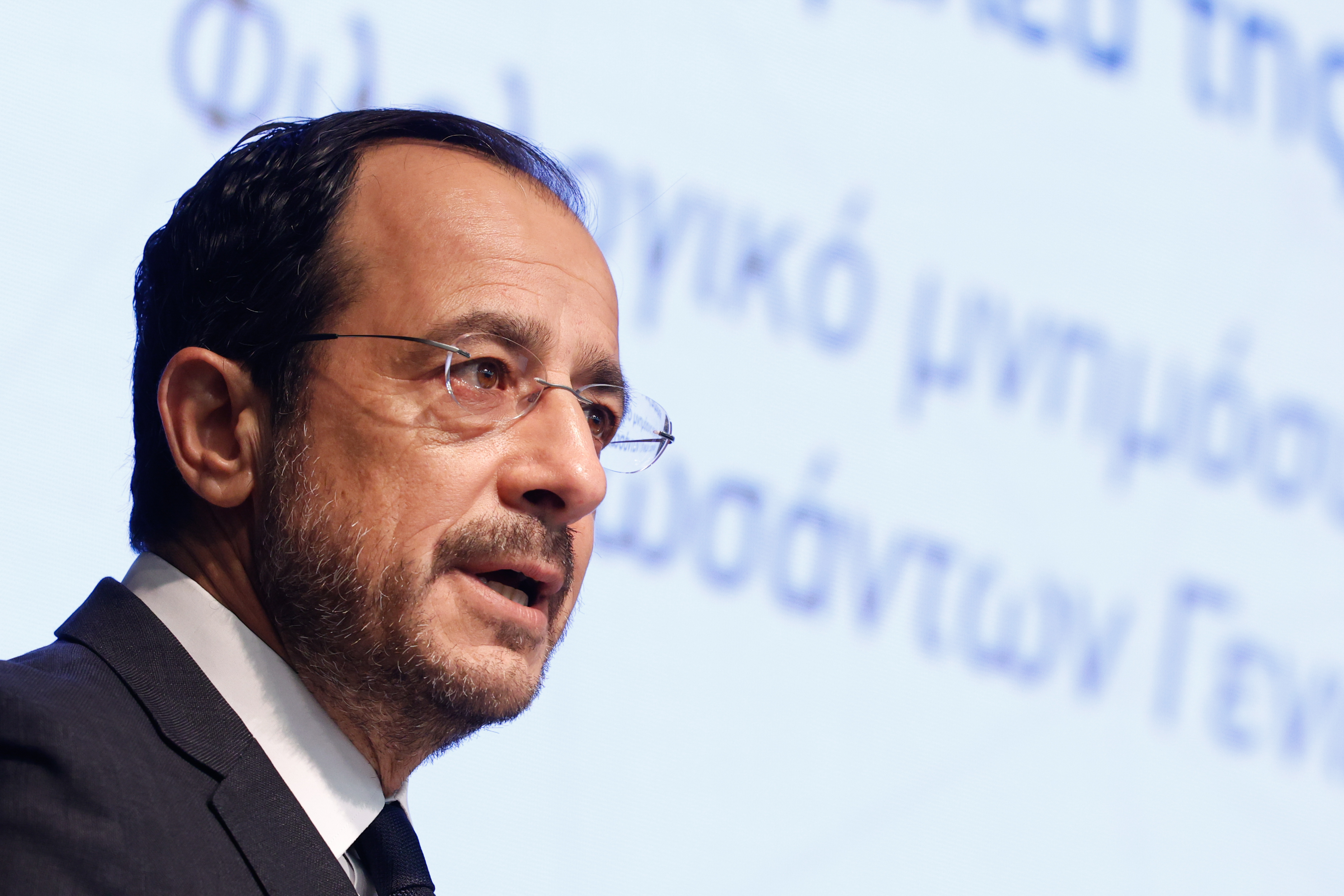It is “necessary” to divide the role of the attorney-general into two, President Nikos Christodoulides said on Tuesday.
Addressing a conference on the matter of the attorney-general’s office, he said the separation of the role “is deemed necessary as a measure of modernisation”, before going on to speak of a “societal demand” for the change to be made.
“It will strengthen people’s trust in justice, ensure accountability and harmonise our country’s situation with European and international standards,” he said.
On this matter, he said the reform is “consistent with the reports and recommendations of European and international bodies”, referencing the Venice Commission, the European Commission, and the Group of states against corruption (Greco) as examples.
He did, however, say he respects incumbent attorney-general George Savvides’ objections to the planned reform.
“I fully recognise and respect the fact that [Savvides], as he has publicly stated, has reservations regarding the constitutionality of the proposed reforms. I reiterate that the reservations, thoughts and concerns are fully respected and within the framework of dialogue, we will work to implement the government’s goal of modernising the legal service,” he said.
If the government’s planned reforms are passed into law, the position of a director of public prosecutions (DPP) will be established, with both the attorney-general and the DPP to have deputies.
The attorney-general will remain as the state’s legal adviser and the head of the legal service, while the DPP and their deputy will undertake the attorney-general’s current responsibilities relating to public prosecutions.

In addition, the bill foresees that all four roles will be limited to a single eight-year term. All will be required to retire either at the end of the term or on their 68th birthday, whichever is soonest.
If passed by parliament, the new law will come into force on December 1, 2027, apart from the term limit provision, which will come into force when the constitution is amended to allow it.
Savvides’ objections included the opinions of the committee of experts he had convened to examine the plans.
Of the seven experts he had called upon, only three consider the reform in its current guise to be constitutional, while one of the three said that he nonetheless disagrees with the plan.
Savvides wrote earlier in the year that “the goal pursued by the separation of powers … could be achieved through an internal arrangement, by assigning responsibilities”, suggesting that the legal service be divided into a “head of the criminal sector” and a “head of legal advice”.
This, he said, could be done “without drastic constitutional intervention”.

He added that he maintains “serious reservations regarding the constitutionality of the reforms”, including the government’s plans to invoke the “doctrine of necessity” to change the constitution.
The “doctrine of necessity” was borne out of the effective collapse of the bicommunal Republic of Cyprus as constitutionally envisioned in 1963 with the ejection of Turkish Cypriots from their constitutionally mandated positions within the state.
“As the attorney-general today and the defender of legality, the rule of law, and public interest, I consider it my duty, at least at this stage, to point out the constitutional visible risks which may arise in the event that the proposed bills are passed with enormous, insurmountable, I would say, negative consequences in the event of a successful challenge to their constitutionality,” he wrote.






Click here to change your cookie preferences